Mozambique: Court suspends Nuvunga defamation trial – AIM report | Watch
Mozambique Elections: Observers concerned about “apparent lack of conditions”

Photo: @PDecide23/X
The Sala da Paz, a group of electoral observer organizations, expressed “some concern” about the “apparent lack of conditions for counting votes” in the general elections that took place today in Mozambique, due to the lack of light.
“From the polling stations visited by the Sala da Paz observers, at closing time, the Sala da Paz noted, with some concern, the apparent lack of conditions for starting the count, due to insufficient light in the voting room”, the platform of electoral observers said, in a statement.
FALTA DE CONDIÇÕES CONDICIONAM CONTAGEM
Na Escola Samora Machel, no Distrito de Morrumbala nas mesas de voto Nº 08038201, 02 e 03, a insuficiencia de kits de iluminação condicionam a contagem de votos m.#decideeleicoes24 pic.twitter.com/8R6JsGqqMc
— Plataforma_decide (@PDecide23) October 9, 2024
#GeraisMoz2024 na Cidade de Maputo o candidato Venâncio Mondlane lidera a preferência dos eleitores para Presidente da República com quase o dobro dos votos @daniel_chapo24 … mas Maputo não é #Moçambique tem apenas 953 das 26 mil Assembleias de Voto https://t.co/YPsPewCG5g pic.twitter.com/MlPxQacdeN
— Verdade Democracia (@DemocraciaMZ) October 9, 2024
The 800 observers from that coalition of civil society organizations visited a total of 3,717 polling stations across the country, reporting “concerns about the lighting conditions at 1,239 [33.3%] of the polling stations, due to insufficient electricity,” the press release states.
The Sala da Paz observers also recorded cases of polling station staff caught red-handed with extra ballot papers, in an attempt to put them in the ballot box at closing time, slow voting queues and the arrival of voters interested in voting at the last minute, causing crowds and unrest.
READ: Mozambique Elections: Mais Integridade reports ballot stuffing in Zambézia and Nampula provinces
“In Sofala province, in the city of Beira, specifically at the Escola Primária Completa da Cerâmica, the observers noted that some voters were prohibited from voting, claiming that they had run out of ballot papers,” the statement says.
The Sala da Paz also reports that its observers photographed ‘pastas’ [bags] hidden behind the boxes of voting material at polling stations 3, 4 and 6 at the Escola Antigos Combatentes, in the district of Dondo, Sofala province.
The observers also verified the presence of voters with the “intention of controlling the votes”, at 798 (21.5%) of the polling stations that they visited.
“Since the presence of voters [at polling stations, after voting] is prohibited by law, this data reveals, in some way, that a significant portion of voters do not trust the work of electoral bodies and agents, which reinforces the need to improve transparency mechanisms in their actions, in order to strengthen voters’ trust”, highlights the Sala da Paz.
Due to the risk that the illegal presence of voters at polling stations could generate unrest, the organization calls on electoral agents and the police to adopt an educational approach, in order to avoid possible situations of violence.
Sala da Paz reports that the closing of the polls took place without any significant incidents and the process was carried out in accordance with the established rules and regulations.
“The participation of young people and women was remarkable, demonstrating the commitment of voters to exercising their democratic rights,” it highlights.
The National Electoral Commission registered 17,163,686 voters for today’s vote, including 333,839 in seven African countries and two European countries.
The elections were attended by more than 184,500 polling station staff, distributed across the country’s 154 districts (180,075) and outside the country (4,436). There were 8,737 polling stations in Mozambique and 334 abroad, corresponding to 25,725 polling stations in the country and 602 stations abroad (South Africa, Eswatini, Zimbabwe, Zambia, Malawi, Tanzania, Kenya, Germany and Portugal), each with seven members.
Today’s general elections included the seventh presidential elections – in which the current head of state, Filipe Nyusi, who reached the constitutional limit of two terms, did not run – simultaneously with the seventh legislative elections and the fourth for provincial assemblies and governors.
Running for President of the Republic are Lutero Simango, supported by the Democratic Movement of Mozambique (MDM), Daniel Chapo, with the support of the Mozambique Liberation Front (Frelimo, in power since 1975), Venâncio Mondlane, supported by the extra-parliamentary Podemos party, and Ossufo Momade, with the support of the Mozambican National Resistance (Renamo).


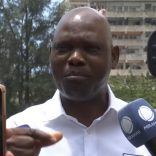
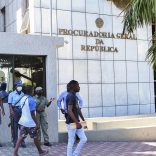
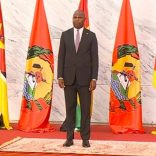
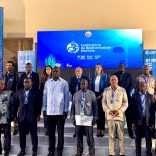
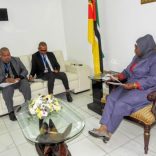
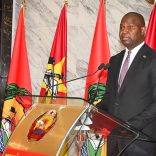




Leave a Reply
Be the First to Comment!
You must be logged in to post a comment.
You must be logged in to post a comment.